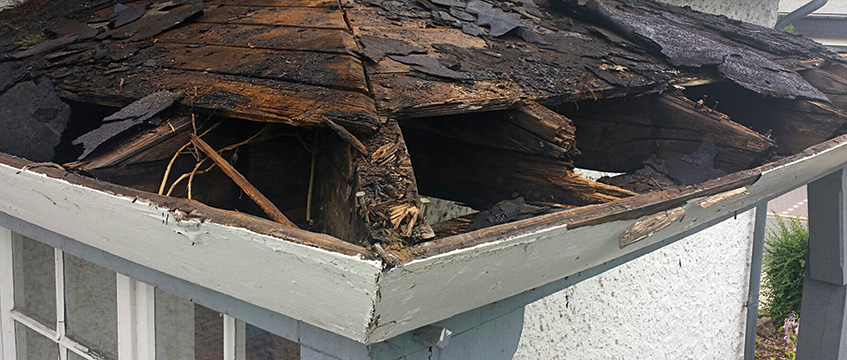The usual route for tenants to pursue their landlords for poor housing conditions is via a disrepair claim, pursuant to the Pre-Action Protocol for Housing Conditions Claims (England) (the Housing Protocol).
The Environmental Protection Act 1990 is an alternative method by which tenants can make a complaint about the landlord’s breach of repairing obligations, using criminal proceedings in the magistrates’ court.
Complaints under the 1990 Act were historically made by local authorities.
However, increasingly, private tenants are making these complaints against landlords themselves – even, somewhat ironically, against councils, where the ultimate landlord of a block of flats is a council.
Complaints under a 1990 Act claim will suggest that the defendant has committed a statutory nuisance, which can be a criminal offence if left unabated.
A word of warning to managing agents: in Camden London Borough Council v Gunby [1999] 3 EGLR 13, the court held that a managing agent receiving rent can be the “owner of the premises” under the 1990 Act, and so it can be difficult for an agent to avoid liability for a complaint.
Commencing the action
Proceedings may be initiated by a complainant who is “aggrieved”. Ordinarily this means a tenant or licensee, but interestingly it can also be extended to anyone else who is permitted to occupy the premises in question, such as family members or lodgers.
Under section 82 of the 1990 Act, a complainant can apply to a magistrates’ court for an order requiring the responsible party to abate the nuisance and ensuring that it will not continue once proceedings have ended.
However, the complainant must first send an “intimation notice” to the party of whom the nuisance is alleged, specifying the nature of the nuisance and giving them not less than 21 days to abate the nuisance.
The stakes are high, because after receipt of a valid intimation notice a landlord has very little time to abate a nuisance.
Challenging service
It is often possible to challenge the service of the intimation notice and/or the summons. Challenging service at an early stage can delay proceedings and give valuable time for landlords to abate any nuisance or negotiate a settlement prior to court proceedings. No offence exists before the date when the statutory notice period expires.
Service of the intimation notice must comply with section 160 of the 1990 Act. Any complainant will need to show actual service or deemed service.
The intimation notice must also comply with section 82(6), in that it must:
a) where it relates to premises, specify the premises in question;
b) indicate the basis on which the recipient is said to be obliged to abate the nuisance; and
c) indicate the matters complained of.
Making a complaint
If the recipient of the intimation notice cannot or does not abate the nuisance, the complainant can make a complaint about a landlord to a magistrates’ court. If this is accepted by the court, it will issue a summons ordering the landlord to attend court proceedings.
If the landlord pleads guilty at the first appearance, an abatement notice will be made. If the landlord pleads not guilty, the court will adjourn the case to a day when there is sufficient time for the case to be tried.
At the final hearing, the court will make an abatement notice if it is satisfied that an alleged nuisance exists or, if already abated, is likely to recur on the same premises.
In either case, an abatement notice will be made:
a) requiring the defendant to abate the nuisance, within a time specified in the order, and to execute any works necessary for that purpose; and/or
b) prohibiting a recurrence of the nuisance and requiring the defendant, within a time specified in the order, to execute any works necessary to prevent the recurrence.
If the magistrates’ court is satisfied that the alleged nuisance exists and renders the premises unfit for human habitation, the court can also make an order prohibiting the use of the premises for human habitation until the premises are rendered fit again.
If an abatement notice is made, it is crucial that the landlord complies. Breach of an abatement notice constitutes a criminal offence, which can be penalised by way of a daily fine in certain circumstances. If the matter proceeds to trial, there are a number of defences available to the landlord.
Defences
A defendant can rely on the following defences:
a) the issue complained of does not amount to a nuisance or is not a genuine risk to health;
b) the notice provided by the complainant was invalid or did not adequately identify the alleged nuisance; or
c) the notice was served on a party not responsible for the nuisance or it has not been possible to determine the person responsible for the nuisance.
Conclusion
There is a clear distinction between the 1990 Act route and a disrepair claim. Classically, a tenant will follow the Housing Protocol and attempt to settle their claim before bringing civil proceedings.
A claim under the 1990 Act works in a similar way but, as it is dealt with in the criminal courts, the implications are broader and more public in nature. It is therefore important to deal with these claims promptly and instruct solicitors in good time.
Furthermore, in any type of nuisance claim, it is always worth considering whether there may be an opportunity to come to a negotiated settlement with the persons responsible for the nuisance.
This may avoid the time and cost of court proceedings altogether and, even more importantly, the potential of gaining a criminal conviction.
Priya Sejpal is a partner and Natalie Neil is a solicitor at JMW Solicitors. Colin Banham is a barrister at No5 Barristers’ Chambers
Photo © Monsterkoi/Pixabay
Follow Estates Gazette








